UAB School of Nursing faculty provide Psychiatric-Mental Health Nurse Practitioner students with an evidence-based education in a variety of clinical settings. Faculty clinical and research expertise includes addictions, child and adolescent care, veterans, trauma-informed care and other specialty focuses.
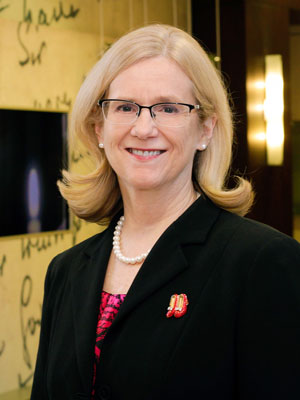
Teena McGuinness, PhD, CRNP, PMHNP-BC, FAANP, FAAN
Professor and Chair, Department of Family, Community and Health Systems
Teena McGuinness, PhD, CRNP, PMHNP-BC, FAANP, FAAN, joined UAB School of Nursing as a professor in 2007 and became chair of the Department of Family, Community and Health Systems in 2013.
She is the founding faculty member for the PMHNP program and co-director of the School’s VA Nursing Academic Partnership (VANAP) Mental Health Nurse Practitioner Residency, a partnership with the Birmingham VA Medical Center that aims to train more nurse practitioners to address the mental health needs of a growing Veteran population. The School is one of only six sites in the country with such a program.
“There’s no health without mental health. In fact, absence of mental health care complicates the treatment of physical conditions, which makes programs such as the PMHNP specialty and partnership with the VA so important,” McGuinness said. “Psychiatric nurse practitioners can help patients experience a better quality of life.”
McGuinness has also led efforts to increase access to mental health care through UAB School of Nursing-affiliated clinics and grants, including two grants from the U.S. Department of Health and Human Services Health Resources and Services Administration (HRSA) to expand the PMHNP workforce — one for $770,000 in 2008 and another for $1.1 million in 2012.
McGuinness’ research scholarship has focused on vulnerable youth who have been internationally adopted from orphanages, and she has studied risk and protective factors for children in U.S. foster care. Her teaching scholarship involves increasing psychiatric nursing workforce, especially as it pertains to Veterans’ mental health.
McGuinness received the UAB President’s Award for Excellence in Teaching in 2012 and received the American Psychiatric Nurses Association Award for Excellence in Nursing Education in 2018. She was inducted as a Fellow of the American Association of Nurse Practitioners (AANP) in 2018.
“As we educate more psychiatric nurse practitioners, UAB School of Nursing is addressing the mental health care shortage in our state and country,” McGuinness said. “We’re providing care to vulnerable and underserved populations, and I am glad to be part of that as a nurse educator and practitioner.”
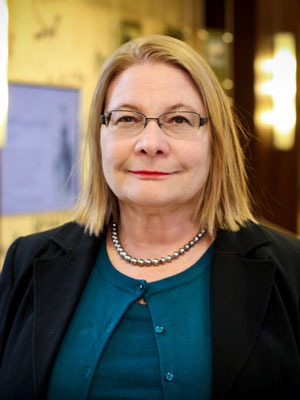
Susanne Fogger, DNP, CRNP, CARN-AP, PMHNP-BC, FAANP
Professor
Susanne Fogger, DNP, CRNP, CARN-AP, PMHNP-BC, FAANP, has more than 40 years of experience as a psychiatric/ mental health nurse and is a 12-year veteran of the United States Air Force Nurse Corps, where she served as a psychiatric nurse.
She teaches in the School’s Master’s of Science in Nursing Psychiatric Mental Health Nurse Practitioner specialty track and Doctor of Nursing Practice program. She is a content expert for addictions and substance abuse.
Her current practice is at the UAB 1917 HIV outpatient clinic, treating individuals with psychiatric and substance use disorders. Fogger also educates family nurse practitioners (FNP) in rural communities to have an improved understanding of psychiatric issues. She is integrating psychiatric care into the primary care, as often patients with personal issues seek care from their local providers. These FNP students are better prepared to identify and treat substance use disorders and psychiatric issues.
Fogger has been a member of the International Nurses Society on Addictions (IntNSA) for more than 13 years and serves on the Board of Directors as treasurer. Fogger received IntNSA’s President’s Award for Service, an award that recognizes years of contribution to the organization, in 2017. She previously received the organization’s Education Award, in 2015. She was inducted as an American Association of Nurse Practitioners (AANP) Fellow in 2015. She is also on the Editorial Board for the Journal of Addictions Nursing.
“Our program has always had a focus on substance abuse disorders, which is a No. 1 issue facing Americans. As an IntNSA board member, I am a part of conversations regarding the rewriting of scope and practice, and I’m able to bring up-to-date knowledge to the SON,” Fogger said.
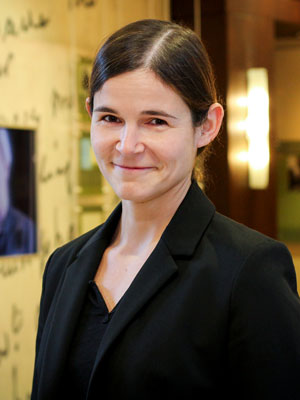
Simone Durand, MSN, MS, CRNP, PMHNP-BC
Psychiatric/ Mental Health Nurse Practitioner specialty track coordinator
Simone Durand, MSN, MS, CRNP, PMHNP-BC, has worked in the mental health care field since 2005 and has experience as an outpatient therapist, residential program manager and psychiatric-mental health nurse practitioner, working with patients across the lifespan. Her teaching interests include psychopharmacology, therapeutic modalities, personality disorder treatment, motivational interviewing and behavior change, and her clinical interests include survivors of trauma, caring for veterans, skill building for patients with Borderline Personality Disorder, and behavior modification for children with ADHD.
Durand is the psychiatric/mental health nurse practitioner specialty track coordinator and helped create a Child/Adolescent PMHNP Residency at Children’s of Alabama.
“I have found that academia and clinical practice are very complimentary activities, and when combined, they result in better care and better education,” Durand said. “To me, it is important to utilize the resources we have through our faculty and partnerships in order to address the shortage of mental health care providers and to give our students a well-rounded education.”
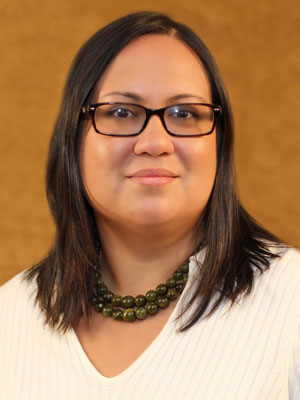
Karmie Johnson, DNP, CRNP, PMHNP-BC
Assistant Professor
Karmie Johnson, DNP, CRNP, PMHNP-BC, is a two-time graduate of UAB School of Nursing, receiving her Master of Nursing in Psychiatric/ Mental Health Nursing in 2011 and Doctor of Nursing Practice in 2016.
Johnson specializes in mental health nursing with an emphasis in the child/adolescent population and has extensive experience in cultural competency as a Returned Pease Corp Volunteer. She also is the School’s Paul D. Coverdell Peace Corps Fellows Coordinator.
Johnson’s research focus includes mental health, personality disorders, child/adolescent behaviors, cultural competency, forensic nursing, compliance, and social determinants of health.
“My background is in behavioral health with adolescents that faced early childhood trauma or other mental health issues. It’s important to understand that clients may face both external and internal barriers to improving their emotional well-being, so I approach care without an agenda,” Johnson said. “There’s a lot of stigma around mental health, but starting small and building trust are important first steps toward teaching clients to advocate for themselves and creating the insight needed to ask for help.”
She works with the Nurse-Family Partnership of Central Alabama, administered by the UAB School of Nursing, to provide mental health care to new, first-time mothers.
 Chance Nicholson, MSN, CRNP, PMHNP-BC, PhD(c)
Chance Nicholson, MSN, CRNP, PMHNP-BC, PhD(c)
Instructor
Chance Nicholson, MSN, CRNP, PMHNP-BC, PhD(c) is in his fourth year as an academic faculty member in the university setting. Nicholson is a 2013 graduate of the UAB School of Nursing’s Psychiatric Mental Health Nurse Practitioner specialty track. He has a faculty practice at the VA Community-Based Outpatient Clinic in Bessemer, Alabama; additionally, he runs the psychiatric mental health nurse practitioner resident continuity clinic as part of an academic partnership with the Birmingham, Alabama VA Medical Center.
Nicholson is currently in his PhD candidacy. He has presented and published in the arena of neuromodulation, gut-brain axis, as well as inflammatory and biobehavioral mechanisms involved in trauma-based disorders and mood disorders. Currently, he is investigating the vagus nerve’s role in HIV-associated neurocognitive impairment as indexed by respiratory sinus arrhythmia. He is a Jonas Scholar and was a recipient of the Rising Research Star awarded by Sigma Theta Tau Internal Honor Society.
“It is not enough just to extend or encourage care, but to help develop and discover innovative mechanisms and opportunities to effectively deliver mental health care. Each new mechanism discovered, be it therapeutic, biologic, or a new clinical site to deliver care, creates opportunity potentiation to improve access and outcomes for those who need it most,” said Nicholson. “One of the most powerful features of a mechanism such as the resident continuity clinic, for example, is that we are able to really get to know the veterans as they individually experience any given mental health disorder. The increased access and extended time assists both the veteran and provider in understanding the nature of their needs, which allows for increased precision in providing interventions. Most importantly, it helps them develop a therapeutic language to communicate and advocate for their needs to family, friends, community, and other providers.”
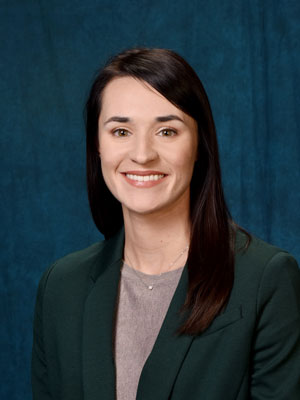 Jennifer Carpenter, MSN, CRNP, RN-BC, PMHNP-BC
Jennifer Carpenter, MSN, CRNP, RN-BC, PMHNP-BC
Instructor
Jennifer Carpenter joined UAB School of Nursing in 2017 as an instructor with an emphasis in psychiatric/mental health nursing. She began her career as an RN in UAB’s Psychiatric Intensive Care Unit and returned to UAB for her Master’s in Nursing (MSN). She graduated from the UAB School of Nursing PMHNP program in 2016. After obtaining her master’s degree, Carpenter completed the PMHNP residency at the Birmingham VA Medical Center and currently holds a faculty practice with the VA.
Her teaching/clinical interests include psychiatric mental health nursing, veterans’ mental health and advanced nursing practice.
“I chose to enter the PMHNP program because I wanted to help increase people’s access to the mental health care they need and improve their overall quality of life, and as a faculty member, I hope to inspire students to treat the whole person, not just a diagnosis. This specialty track provides students with an opportunity to hone their skills and provide the best psychiatric/ mental health nursing care possible.”